Tuesday Talkies: Is Love Enough? Sir - A love story that transcends class barriers
The film directed and written by Rohena Gera stars Tillotama Shome and Vivek Gomber in lead roles
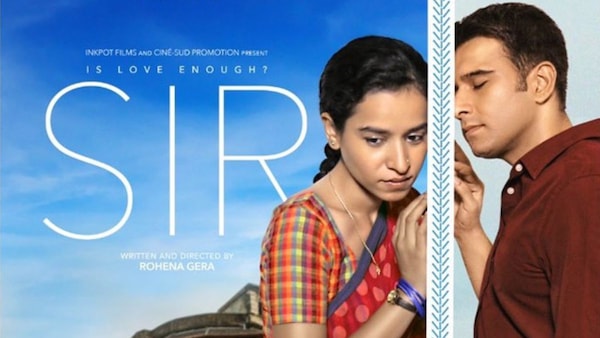
Last Updated: 09.44 AM, Jun 08, 2022
In our new weekly series, Tuesday Talkies, we recommend critically acclaimed and award-winning Indian films.
The rich guy falling in love with or sexually attracted to his domestic help is an outdated and frequently used trope in Indian films. While most films stick to the stereotypical portrayal of the poor and vulnerable woman wanting to be loved and liberated of all her miseries, a few movies stand out in their depiction of existing class and caste barriers while keeping a love story at their core.
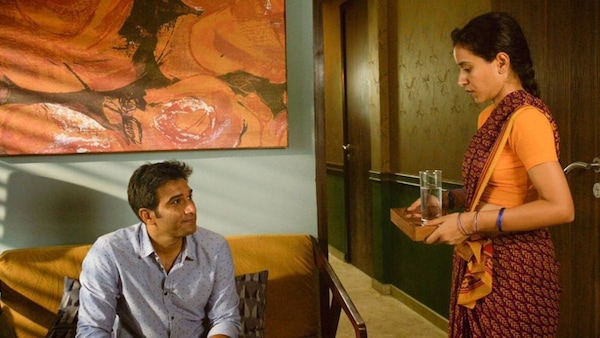
Shyam Benegal’s first film Ankur (1974) which also marked the debuts of Shabana Azmi and Anant Nag, portrays the story of Lakshmi (Azmi), a lower-caste woman who bears a child after an extramarital relationship with the village landlord’s son, Surya (Nag). The critically acclaimed film that bagged three National Awards brought to the limelight several issues such as casteism, patriarchy, and poverty. In the 2018 anthology film Lust Stories, Bhumi Pednekar plays a domestic help named Sudha who is in a sexual relationship with her employer, Ajit (Neil Bhoopalam). However, the equation between them changes when Ajit’s parents turn up with a marriage proposal. Ajit conveniently ignores and forgets Sudha as he prepares to marry a girl who matches his socio-economic status. The same year, Rohena Gera directed Is Love Enough? Sir that asks whether love is the only essential prerequisite for two individuals to get past social divides and start a life together.
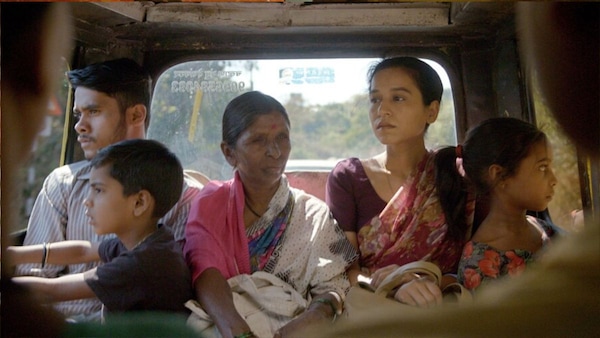
In the opening scene of Sir, we see Ratna (Tillotama Shome), who comes from a village in Maharashtra, cutting short her two-weeks break and heading back to Mumbai, where she works as a live-in maid. Her employer Ashwin (Vivek Gomber) calls off his wedding at the last minute after learning about his to-be wife's infidelity. Ashwin, who remains gloomy and indifferent for several days, begins to have short conversations with Ratna. Through their exchanges, we learn that Ratna is a widow. She wanted to pursue an education but her parents decided to marry her off since the groom’s family didn’t demand a dowry. She ended up marrying at the age of 19, and four months into her wedding, her husband dies. She tells Ashwin, “Do you know what that means in the village?... It means that your life is over. But today, I am earning my own living. Although I’m a domestic servant, I am taking care of Choti’s (her sister's) education…Life doesn’t end sir.” Ratna is not financially well-off but she is not vulnerable either. She is a fiercely independent woman who dreams of becoming a fashion designer. At the same time, she wants to provide an education and a better life for her younger sister.
As the narrative progresses, we learn that Ashwin returned to India from the US to support his family when his brother fell sick. He decided to stay back following his brother’s death and help his father with his business. In the process, he gave up on his dream of becoming a writer. When Ratna hears Ashwin’s story, she says, “I used to think rich people had an easy life. But even you can’t leave even if you want to.”
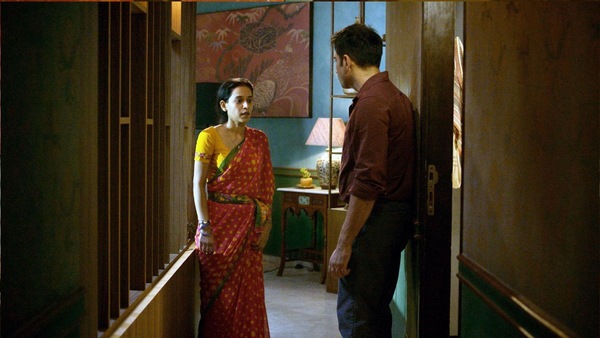
When Ratna first mentions her dream of becoming a fashion designer, Ashwin jokingly brushes it off. But he soon realises his mistake and apologies saying, “Everyone has the right to dream.” Ratna starts attending tailoring classes and even gifts Ashwin a self-stitched shirt on his birthday. As their fondness for each other grows, they realise that love alone is not enough for society to accept their relationship. Ratna knows that their love is forbidden and tries to stay away from Ashwin. She requests him to not make her a laughingstock in front of others. Meanwhile, Ashwin is ready to face the consequences, and what others think is the least of his bother.
Shome is brilliant as Ratna in the film. Her acting is raw, sincere, and powerful. She convincingly puts forth the emotions of a woman who is attracted to a man she cannot be with. Likewise, Gomber plays his part very well. The chemistry between the two actors is palpable throughout the narrative. Geetanjali Kulkarni plays Laxmi, a domestic help and Ratna’s confidante. Ratna’s scooter rides with Laxmi along the busy streets of Mumbai make some of the best scenes in the film. The film also features Divya Seth, Dilnaz Irani, Anupriya Goenka, and Rahul Vohra.
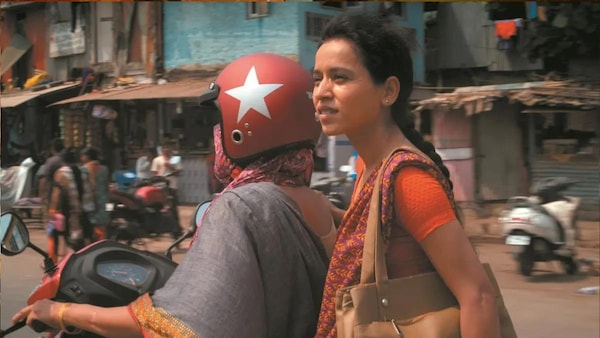
The highlight of the film is director-writer Gera’s screenplay. The narrative succeeds in drawing us towards the characters and keeping us hooked till the very end. The characters are well-written and relatable. Additionally, the film does not shy away from bringing to the forefront the prevailing class bias in society. For instance, when Ashwin expresses his feelings for Ratna to one of his friends, he immediately discourages him. Gera handles the topic with sensitivity and genuineness. In an interview, Gera said that her film was not a fairytale wherein the female lead was waiting to be rescued by a ‘Prince Charming’. She added that she drew inspiration for Ratna’s character from her own observations of Indian women. The cinematography by French cinematographer Dominique Colin adds realism to the film, while Jacques Comets and Baptiste Ribrault’s editing is crisp.
The film premiered at the Cannes Film Festival in 2018 where it bagged the Gan Foundation Award. The well-rounded characters, solid chemistry between the lead actors and an engaging screenplay make Is Love Enough? Sir, a must-watch Indian film.
You can watch Is Love Enough? Sir here.

